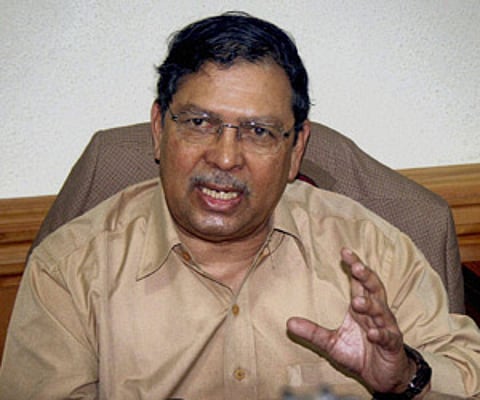

BENGALURU: Laying traps, catching corrupt officials red handed and conducting raids will be the order of the day soon for the Karnataka Lokayukta, which has now been empowered after the Karnataka High Court abolished the Anti-Corruption Bureau that was set up six year ago by the state government. Former Supreme Court judge and former Lokayukta, Justice N Santosh Hegde, under whose leadership the state’s anti-corruption body was a model to other states, told TNSE that the Karnataka Lokayukta Act should be amended to strengthen the corruption watchdog and to do away with the necessity of seeking sanction to prosecute corrupt public servants.
Being a former Lokayukta, what do you suggest to reform the institution?
As recommended by the high court in its verdict, the Karnataka Lokayukta Act (KLA) should be amended to make it binding on the state government to accept the reports submitted by the Lokayukta/ Upa Lokayuktas, recommending disciplinary action against public servants, including the chief minister, ministers, MLAs/MLCs and government servants. Now, if the Lokayukta and Upa Lokayuktas are not satisfied with the action taken by the government, they are empowered to submit a special report to the Governor, but that is not binding.
Do you think this amendment alone will serve the purpose?
No. The provision of sanction that mandates the Lokayukta to take approval of the government before proceeding against corrupt public servants should be repealed. The purpose of establishing the Lokayukta under KLA or restoring its powers to probe corruption cases under the Prevention of Corruption (PC) Act will be defeated if KLA is not amended to make the reports by the Lokayukta binding. It will also serve no purpose if no amendment is made to CrPC and PC Acts to repeal the provisions that mandate sanction to prosecute corrupt public servants.
How do you say this is relevant in the present scenario?
When no sanction is needed to chargesheet the general public, what is the necessity for the Lokayukta to seek the approval from a competent authority/state/central governments to prosecute public servants under the PC Act? It is irrelevant to say that the concept of sanction was introduced during the British era to avoid false, frivolous or vexatious complaints. The PC Act should be amended by the central government to do away with the ‘sanction’ and ‘deemed sanction’ provisions to chargesheet corrupt public servants by independent bodies like the Lokayukta. This will avoid the long wait to get the approval of the government, which may give the sanction or deliberately delay or deny it to shield the accused as is prevalent now.
What would you suggest to the state government?
Honest police officers with impeccable track records should be sent to the Lokayukta with prior consultation with him and after a thorough background check. The officers must not be yes men and should be independent. Specific officers should be transferred if the Lokayukta desires so and no officer should be transferred from the Lokayukta before the completion of a minimum of three years. Mainly, the state government has to provide the required infrastructure to inquiry officers, especially funds which are essential to ensure proper investigation and trial by bringing witnesses to the court.
What should be done to modernise the Lokayukta police wing with changes in the corruption pattern?
The police wing of the Lokayukta should be independent with full strength, including the ADGP, IGP, SPs, DySPs and inspectors. The officers should not have the attitude of pleasing politicians or higher officials, and should be bold enough to take action against any public servant. I submitted reports against three chief ministers and eight ministers. The kind of officers like the then ADGP Rupak Kumar Dutta and Superintendent of Police Late Madhukar Shetty are required now to act against corrupt public servants, however mighty they could be. The Lokayukta should closely monitor the investigations to ensure that they reach their logical end. Action should be taken against officials not performing up to the mark within the Lokayukta and shown the way out.
Any advice to the Lokayukta/ Upa Lokayuktas?
Of course, the Lokayukta as well as the Upa Lokayuktas should bear in mind that they have been given a major responsibility that should be carried out with utmost devotion. If there are honest and efficient police officers, inquiry officers, the Lokayukta and Upa Lokayuktas, law or amendment to existing laws is not required.